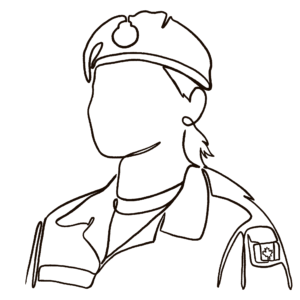
Post Traumatic Stress Disorder (PTSD) and other trauma and stressor related concerns can develop in individuals who have experienced or witnessed a traumatic event. These events can vary widely and may include accidents, combat, violent and sexual assaults, repeated exposure to aversive details of a traumatic event during an investigation, or other life-threatening situations.
Trauma and stressor related conditions, like PTSD, can manifest in various ways, including unwanted distressing memories or flashbacks of the traumatic event, nightmares, severe emotional distress, and physical reactions such as sweating or trembling when reminded of the event. Individuals may also avoid situations, places, or people that remind them of the trauma. Additionally, they may experience shifts in mood and thinking, such as feeling disconnected from others, struggling with feelings of guilt, shame, or anger, and having difficulty trusting others or believing that the world is an extremely dangerous place. Common symptoms also include finding it challenging to focus or achieve restful sleep and feeling constantly on guard or easily irritated.
While it’s natural to experience stress and fear after a traumatic event, a traumatic condition like PTSD occurs when these symptoms persist for an extended period and significantly impact daily functioning.
Treatment for trauma and stressor related conditions typically include psychotherapy, medication, or a combination of both.
What does therapy look like for trauma?
Many people are hesitant to seek treatment for trauma for many reasons, including, fear of being overwhelmed, stigma, or misconceptions about therapy.
Recognizing that individuals learn and heal in diverse ways, the BC OSI Clinic provides psychotherapy through various modalities, such as Cognitive Processing Therapy (CPT), Eye Movement Desensitization and Reprocessing (EMDR), and Prolonged Exposure (PE). For further information about these modalities, their differences, and which one may suit you best, please visit PTSD: Decision Aid (va.gov) These therapies are supported by research studies, ensuring they can reliably improve symptoms and support better mental health outcomes.
Learn more about trauma & coping strategies:
The PTSD Coach Canada mobile app was developed by Veterans Affairs Canada in partnership with the Department of National Defence and the Canadian Mental Health Association. It provides information and self-help tools to help manage symptoms of PTSD based on current research.

PTSD Coach Online is used on a computer, rather than a mobile device, and therefore can offer tools that involve writing.
Coping With Unwanted Thoughts: RESET for Active-duty Soldiers:
RESET is a 1-hour video training that aims to help soldiers cope with intrusive (unwanted) thoughts following deployment.
Books:

The PTSD Workbook:
Simple, Effective Techniques for Overcoming Traumatic Stress Symptoms by Mary Beth Williams
Get book

The Body Keeps the Score
by Bessel van der Kolk
Get book
Mindfulness and Relaxation Techniques:
Regularly practicing mindfulness and relaxation techniques can help you cope with unwanted symptoms:
Free breathing and meditation apps:



Grounding and meditation videos:
This website is meant to provide general information and strategies. They are therefore not meant to be a substitute for individual treatment or therapy. Please consult with your healthcare provider or a member of our team for help specific to your needs.
Do you find this page helpful?


